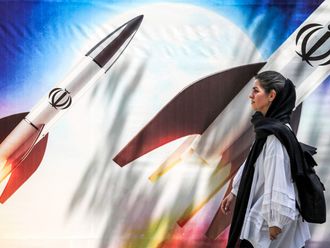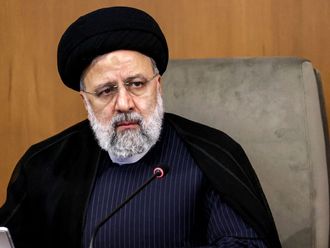Ramallah: The Palestinian National Authority (PNA) has come under massive pressure to not request an immediate vote on the Palestinian-United Nations sponsored resolution, and it seems that the matter will be postponed for some time, potentially for weeks.
The Israeli Haaretz Daily reported on Sunday that the earlier Palestinian determination not to wait on the UN vote has dissipated. A senior PNA official told the Israeli daily that despite the loud protestations, the Palestinian course of action has recently changed to focus on reaching an agreed wording of the draft resolution with Europeans, who according to Haaretz Daily, will probably not support the proposal. “We are in discussions all the time and it is not possible to estimate when the contacts will end and whether it is a matter of days or weeks,” said a Palestinian official.
Within the United Nations Security Council, there are those who want to postpone the vote until after the beginning of the coming year and those who want the vote to be postponed until after the Israeli elections are conducted on March 17th.
US Secretary of State John Kerry has warned that passing a UN Security Council resolution on the Israeli-Palestinian conflict before Israel’s March 17th elections will strengthen hardliners on both sides and will bolster Benjamin Netanyahu and Naftali Bennett.
Kerry’s comments came during a meeting with EU ambassadors and after a meeting with Israel’s Shimon Peres and Tzipi Livni. “Kerry has made it very, very clear that for the United States it was not an option to discuss whatever text before the end of the Israeli elections,” a European diplomat told the magazine Foreign Policy.
A senior state department official told the Foreign Policy that “Secretary Kerry made clear in private as he has in public that we do not think any steps should be taken that would interfere with the Israeli elections.”
Riyad Al Maliki, the Palestinian Minister of Foreign Affairs, confirmed to the daily Al Ayyam that the wording of the draft resolution will be changed to enhance it and make it clearer and in line with the core issues of the Palestinian-Israeli conflict, particularly the issues of Jerusalem and the Israeli colonies in the Palestinian territories. “The draft resolution is open for changes that may come from members of the UN Security Council,” he said. “Verbally, requesting a vote before the year end is possible. All the doors are open.”
Commenting on the US’ position on the draft resolutions, Al Malki said that the US had announced it will not support the resolution, but never announced it would vote against it when it is put to a vote. “So far, we have not received any comments or suggestions from any party, and mainly the US Administration,” he said.
Palestinian political analysts and commentators categorically reject the postponement of a vote, proposing either an immediate vote or a conditioned postponement.
“We need to put heavy pressure on this issue. Even in the case of postponement, the Palestinian should achieve something like colony construction moratorium,” said Talal Okal, a political analyst.
“We usually postpone our measures, but Israel had never postponed any of its measures,” he told Gulf News. “Unconditional postponement is a major and serious loss for the Palestinians at this point of time.”
He said that this is an uncomfortable position for the Palestinians as the postponement would mean more than six months of delay. He explained that according to the Israeli laws and norms, the winner of the elections gets 45 days to establish a government. This period is renewable and could also be offered to a runner-up, if the first winner fails to form a government. “This is a big period of time wasted and the Palestinians must wait,” he said. “The early Israeli elections were meant to cut off the Palestinians’ road to the UN and ruin any chance of resuming the already stalled peace talks.”
“We need to see the independent Palestinian decision and an immediate reaction to the delay, not accepting the requested delay at all,” he said.










